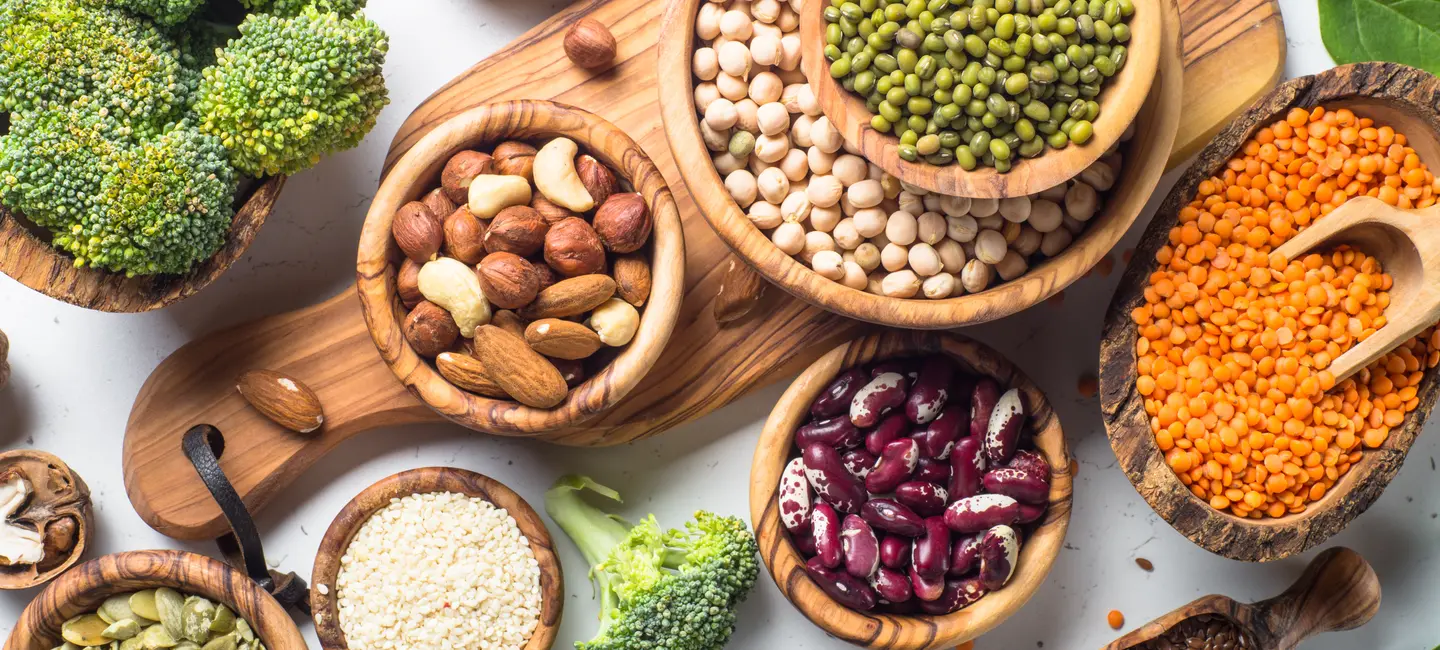
Vegetarian diets, such as the lacto-ovo-vegetarian or vegan diet, are diets that focus on eating plant products and avoiding or limiting animal products.
In lacto-ovo vegetarianism, meats are avoided, while milk and eggs are allowed. In the vegan diet, all animal products are avoided. Vegetarian diets usually involve eating lots of fruits and vegetables and are often high in fiber and low in fat. This might help people lose weight.
People use the vegetarian diet for diabetes, high blood pressure, and obesity. It is also used for athletic performance, heart disease, depression, high cholesterol, and many other conditions, but there is no good scientific evidence to support most of these uses.
Is It Effective?
NatMed Pro rates effectiveness based on scientific evidence according to the following scale: Effective, Likely Effective, Possibly Effective, Possibly Ineffective, Likely Ineffective, Ineffective, and Insufficient Evidence to Rate.
- Diabetes. The vegetarian diet is a healthy diet option for people with diabetes. It might help with blood sugar control. It might also reduce the risk of developing diabetes.
- High blood pressure. Eating a vegetarian diet might reduce blood pressure by a small amount and benefit people with high blood pressure.
- Obesity. Eating a vegetarian diet for at least 3 months seems to improve weight loss in people who are overweight or obese.
There is interest in using the vegetarian diet for a number of other purposes, but there isn't enough reliable information to say whether it might be helpful.
Is it Safe?
When taken by mouth: The vegetarian diet is likely safe for most people. There's no reason to expect safety concerns as long as nutritional needs are met. Following a vegetarian diet can increase the risk for certain nutrient deficiencies, such omega-3 fatty acids, iron, zinc, calcium, vitamin D, and vitamin B12.
Special Precautions & Warnings:
Pregnancy and breast-feeding: The vegetarian diet is likely safe when pregnant or breast-feeding. There's no reason to expect safety concerns as long as nutritional needs are met. Following a vegetarian diet can increase the risk for certain nutrient deficiencies, such omega-3 fatty acids, iron, zinc, calcium, vitamin D, and vitamin B12.
Children: The vegetarian diet is likely safe for children as long as nutritional needs are met. Deficiencies of certain nutrients may be a concern, including omega-3 fatty acids, iron, zinc, calcium, vitamin D, and vitamin B12.
Iron deficiency: People who consume a vegetarian diet do not absorb as much iron as people who consume a non-vegetarian diet. If you consume a vegetarian diet, you might need to eat almost twice as much iron to meet your daily iron needs.
Weak bones: There is concern that people eating vegetarian diets have a greater risk of weak bones. Following a vegetarian diet might also increase the risk for thinner bones and bone fractures.
It is not known if Vegetarian Diet interacts with any medicines.
Before using Vegetarian Diet, talk with your health professional if you take any medications.
Iron: Meat and fish help the body to absorb iron. Following the vegetarian diet can decrease the amount of iron absorbed by the body.
Zinc: Phytate, a chemical found in plants, can decrease the amount of zinc absorbed by the body. People who follow a vegetarian diet might need to consume 50% more zinc than people who do not follow a vegetarian diet.
There are no known interactions with foods.
Vegetarian diets involve eating more plant-based foods and fewer or no animal-based foods. There are many different types of vegetarian diets, some are stricter than others. For example, in lacto-ovo vegetarianism, meats are avoided, while milk and eggs are allowed. In the vegan diet, all animal products are avoided. The appropriate or safe use of a vegetarian diet depends on several factors, including adequate intake of certain nutrients. Be sure to seek and follow relevant directions from your physician or other healthcare professional before starting this diet.
Flexitarian Diet, Fruitarianism Diet, Lacto-Vegetarian Diet, Lacto-Ovo Vegetarian Diet, Ovo-Vegetarian Diet, Pescotarian Diet, Plant-Based Diet, Semi-vegetarian Diet, Vegan Diet, Vegetarianism, Whole Food Plant-Based Diet.
Information on this website is for informational use only and is not intended to replace professional medical advice, diagnosis, or treatment. While evidence-based, it is not guaranteed to be error-free and is not intended to meet any particular user’s needs or requirements or to cover all possible uses, safety concerns, interactions, outcomes, or adverse effects. Always check with your doctor or other medical professional before making healthcare decisions (including taking any medication) and do not delay or disregard seeking medical advice or treatment based on any information displayed on this website.
© TRC Healthcare 2024. All rights reserved. Use and/or distribution is permitted only pursuant to a valid license or other permission from TRC Healthcare.
